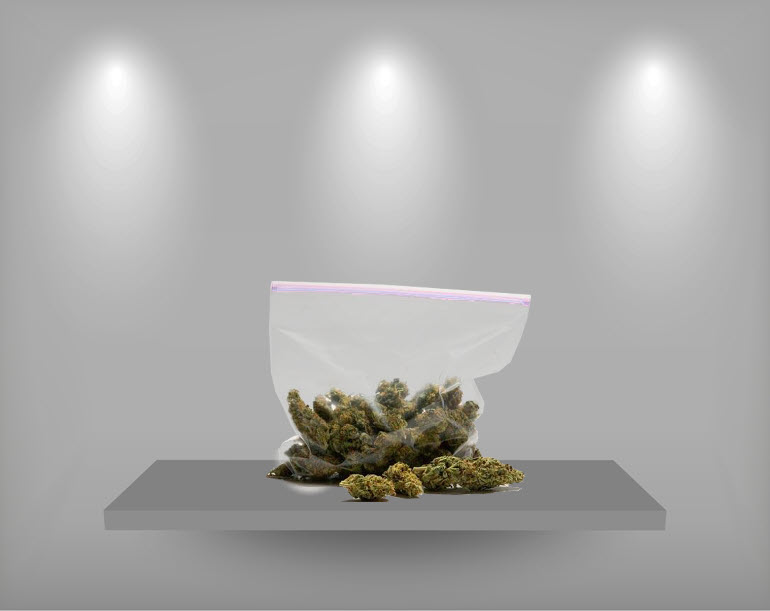
What is the cannabis gray market?
The gray market has severely impacted the growth of the cannabis industry in many states. New York is not lagging behind in this reality, as the unregulated cannabis market has severely halted the growth of legal businesses. Taxation has also been a nightmare due to the numerous unregulated activities in the industry. A new dawn could be on the horizon, however, as the New York Senate just passed legislation allowing officials to rein in gray market activity. Read on as we examine what this law entails and how it will affect the cannabis industry in New York.
The activities of illegal cannabis sellers in New York have been a recurring threat over the years, and officials have struggled to curb these acts. The lack of proper legislation has long kept officials understaffed in this struggle, but all of that is about to change. The New York Senate just passed a bill that would allow regulators to seize illegal cannabis and increase fines for unlicensed operators. The bill was introduced to the House of Representatives by Senator Liz Kreuger on Sunday before being approved on Wednesday. The timing of this approval demonstrates the seriousness of lawmakers in reducing gray market activity before the legal sale of recreational cannabis begins in the state. Sales of legal recreational cannabis are slated to begin in the state later this year.
A spokesman for Senator Kreuger, Justin Flagg, has said the bill aims to strengthen the two agencies charged with stopping illegal cannabis retailers in the state. The two agencies are the New York Office of Cannabis Management (OCM) and the Department of Taxation and Finance. He notes that the activities of unregulated cannabis dealers have become ubiquitous in Manhattan over the years. He added that activity skyrocketed when lawmakers made the move to legalize adult use of cannabis. The bill will therefore target cannabis retail businesses that have sprung up between legislation and the issuance of licenses.
The situation in the legal recreational cannabis market in New York is such that the OCM is still working on rules for the regulated market. This has prevented them from licensing and fully opening the market to the state. However, some overzealous cannabis dealers have taken to starting retail sales without a license, further increasing the prevalence of illegal weed in the state.
Flagg explained that Senator Kreuger initiated this bill with support from the Department of Taxes and Treasury and the OCM. Both agencies have complained about their lack of legal support to shut down unregulated cannabis businesses under the state’s existing law. This bill therefore comes as a breath of fresh air as it empowers them to do what needs to be done within the confines of the law. Now both agencies can easily find unlicensed cannabis operators and confiscate weed and property to service tax evasion and licenses such companies do not have.
Illegal weed in New York is defined as any taxable cannabis product for which taxes have not been paid. There is an increase in civil penalties for those who knowingly possess such a cannabis product. The legislation also applies to cannabis products not grown or purchased from a state-licensed cannabis company. The fine for possessing illegal weed used to be $200 per ounce or flower but has now been increased to $400 per ounce. As a result, fines for possession of various forms of cannabis products also increased. Edibles are fined $10 per milligram of THC, concentrates $100 per gram, and illegal cannabis plants $1,000.
In addition to fines, this new law also gives the Department of Taxes and Finance the power to crack down on licensed companies selling illegal cannabis. Such companies will have their registration certificate revoked once they can be proven to be selling or buying illegal weed. Premises where such activities are conducted may also be closed and their property confiscated in accordance with the draft law. This improves the effectiveness of the department and also reduces the prevalence of such gray markets.
Cannabis gray markets pose a major security concern, one that Justin Flagg also pointed out when discussing the recent bill. Unregulated cannabis retailers do not follow the necessary safety precautions and packaging requirements as mandated by regulators. Nor do they take any measures to prevent such products from getting into the hands of children. This means that the actions of the gray markets are further increasing the risk of children using cannabis. This means that the proper use of cannabis in a state with legal medical and recreational cannabis use must be done by regulated operators.
However, not all support this current legislation proposed by Senator Kreuger. Joshua Waterman, co-founder of the Legacy Growers Association and also a breeder himself, has explained his mistakes regarding the legislation. He recently spoke to local media, where he explained that officials could use the law to do more than what is required. Waterman believes state officials are likely to use the law to punish and penalize minorities and lower-class individuals.
Waterman believes that the state’s move to publish and stamp such a law tends to build distrust between them and the legacy producers. The state has repeatedly claimed that it wants legatees to be included in the legal market. However, Waterman believes it is counterproductive for the state to introduce such a bill before releasing applications for licensing.
bottom line
The appearance of this bill is certainly a breath of fresh air for law enforcement agencies. All that remains now is to start full implementation and do the right structuring to ensure efficiency.
ILLEGAL TO LEGAL WEED, READ MORE…

LIKE THE TRANSITION FROM THE PAST TO THE LEGAL MARKETS!

Post a comment: